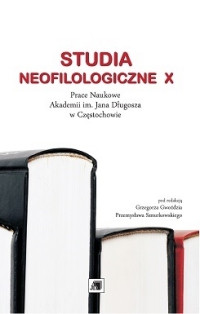First and Second Language Acquisition from the Point of View of the Complexity Theory
First and Second Language Acquisition from the Point of View of the Complexity Theory
Author(s): Katarzyna RokoszewskaSubject(s): Language and Literature Studies, Applied Linguistics
Published by: Uniwersytet Jana Długosza w Częstochowie
Summary/Abstract: The complexity theory, developed in the physical sciences, has been recently implemented in the field of applied linguistics. According to this theory, complex systems are random, non-linear, unpredictable, self-organizing and tend to form regular but never identical patterns. According to Larsen- Freeman (1997, 2008), language may be also construed in terms of complex systems. Language acquisition is a dynamic process characterized by variability. It is complex in that it involves many interacting factors and non-linear as learners do not master one item at a time. Their interlanguage is self-organizing as it undergoes continuous restructuring while their first language functions as the so called strange attractor. This theory brings together dynamic systems theory, emergentism, connectionism and ecological approaches. It offers a new metaphor and new ways of thinking about SLA issues, challenging the established ideas and modifying research methods. The aim of this paper is to present the main principles of the complexity theory in relation to the process of first and second language acquisition.
Journal: Prace Naukowe Akademii im. Jana Długosza w Częstochowie. Studia Neofilologiczne
- Issue Year: X/2014
- Issue No: 10
- Page Range: 125-141
- Page Count: 17
- Language: English

